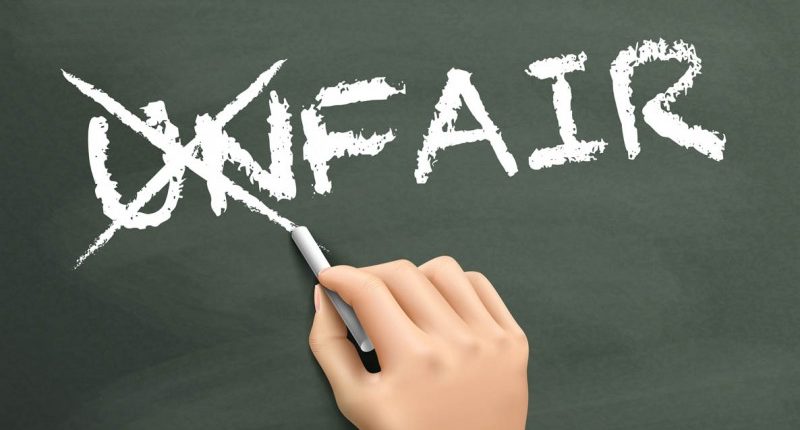BASIC GUIDE: LABOUR RELATIONS IN SOUTH AFRICA
BASIC GUIDE: LABOUR RELATIONS IN SOUTH AFRICA
In today’s world, we need to arm ourselves with as much information regarding our rights. Especially when it comes to fair and unfair labour practices., according to Labour Relations in South Africa.
Every employee/worker is entitled to fair labour practices in South Africa. Let us elaborate a bit more on fair labour practices, and the different types of unfair dismissal.
First, who does The Labour Relations Act apply to?
The Labour Relations Act applies to all employers, workers, trade unions and employers’ organisations. It does not apply to:
- National Defence Force,
- National Intelligence Agency, or
- South African Secret Service.
The Labour Relations Act (LRA), Act 66 of 1995 aims to promote economic development, social justice, labour peace and democracy in the workplace.
For a fuller understanding of The Labour Relations Act, please download it here.
DISMISSAL:
Under dismissal, every employee or worker has the right to not be unfairly dismissed.
What is the definition of DISMISSAL?:
“Dismissal” means that, or the reason for ‘Dismissal’ is –
- the employer has ended a job contract with or without notice;
- an employer did not renew a job contract as agreed, or offered to renew it on less favourable terms;
- an employer does not allow a worker to return to work after she –
- has taken legal maternity leave;
- has been absent up to 4 weeks before and up to 8 weeks after the birth;
- an employer, who has dismissed several workers for the same reason, re-employs only some of them;
- a worker ended a job contract with or without notice, because –
- the employer made working circumstances unbearable; or
- a new employer made working conditions less favourable than the old employer.
Fair Dismissal is when:
There is really only 3 grounds for fair dismissal;
- Conduct of the employee
- Capacity of the employee (his ability to do his job)
- Operational requirements of your business (retrenchment)
As stated by (www.labour.gov.za), fair dismissal is also when;
- A worker has reached retirement age
If an employer wants to dismiss an employee, there are 5 vital elements to substantive fairness:
- The accused employee did commit the misconduct.
- The employee knew or should’ve known that the conduct was an infringement of your rules.
- The rule or standard was valid or reasonable.
- The rule was consistently applied.
- The misconduct was serious enough to merit the harsh penalty of dismissal.
What are some of the reasons an employer would want to dismiss an employee or worker?
- Absenteeism
- Alcohol addiction & abuse
- Breach of restraint of trade agreement
- Desertion
- Disability
- Email/Internet abuse
- Failure to observe security and safety regulations
- Gross incompetence
- Gross negligence
- Illegal striking
- Incapacity
- Insubordination
- Moonlighting
- Poor performance
- Refusal to work
- Retrenchment
- Sexual harassment
- Sleeping on duty
- Theft
- Time keeping
Unfair Dismissal is when:
- a worker intended to or did take part in or supported a strike or protest; or
- a worker refused to do the work of a striking or locked out co-worker, unless his refusal will endanger life or health; or
- a worker is forced to accept a demand; or
- a worker intended to or did take action against an employer by –
- exercising a right; or
- taking part in proceedings; or
- a worker is pregnant or intends to be pregnant; or
- an employer discriminated against a worker because of race, gender, sex, ethnic or social origin, colour, sexual orientation, age, disability, religion, conscience, belief, political opinion, culture, language, marital status or family responsibility; or
- an employer cannot prove –
- a worker’s misconduct or inability; or
- that the employer’s operational needs are valid; or
- that the dismissal procedure was fair.
What happens after the idea of dismissal has been discussed?
There is something called ‘Pre-Dismissal Arbitration’, where, with a worker’s consent, an employer may want to seek assistance from a council, agency or Commission for Conciliation, Mediation and Arbitration also known as the CCMA, to arbitrate on a workers conduct or ability.
Only after the employer has paid the necessary fee, and the worker has given consent, will an arbitrator be appointed.
When the time for arbitration arrives, a worker may represent himself, or be represented by the following individuals:
- A co-worker
- A director or worker (if they are a juristic person)
- Any member of the workers registered trade union, or
- A lawyer that has been agreed to by both parties.
Now that we understand a bit more of the processes included before and during a dismissal, what exactly constitutes and ‘Unfair Labour Practice’?
Unfair Labour Practice:
Means any failure to act or unfair act of an employer towards a worker.
Concerning:
- Promotion/Demotion, Trial Periods, Training or Benefits.
- Suspending a worker or disciplinary action,
- Refusing to re-employ a worker, as agreed, and
- An employer makes circumstances difficult for a worker who was force to make a protected disclosure.
In the event of this happening, a worker may dispute their dismissal.
Disputes:
What is the procedure when it comes to ‘disputes’?
When unfairly dismissed, a worker may refer disputes for conciliation in writing to:
- a statutory or bargaining council; or
- the CCMA.
Referrals must be made within –
- 30 days of a dismissal date or an employer’s decision to dismiss;
- 90 days of the date of an unfair labour act; or
- 90 days of the date when a worker became aware of an unfair act.
Please note: A dispute may be referred to after the above periods if the worker can show good cause.
The employer must receive a copy of the referral.
What happens in an ‘unresolved dispute’?:
This is what needs to happen if a dispute remains unresolved: –
- a council or the CCMA must arbitrate it, if a worker requests it, if –
- a worker alleges that the dispute is about his conduct or capacity;
- the worker alleges that his employer made working conditions intolerable or less favourable after a transfer;
- the worker does not know why he was dismissed;
- the dispute is about an unfair labour practice;
- a worker may refer a dispute to the Labour Court, if they say the reason is –
- automatically unfair;
- based on operational needs;
- they refused to join a trade union;
- the worker was refused trade union membership;
- the worker was expelled from a trade union.
A council or the CCMA must arbitrate immediately if –
- the dismissal is linked to a worker’s probation; or
- any other dispute where no-one objects to it being settled in terms of this subsection.
For more information on the CCMA, please visit www.ccma.org.za
Thank you for reading!





